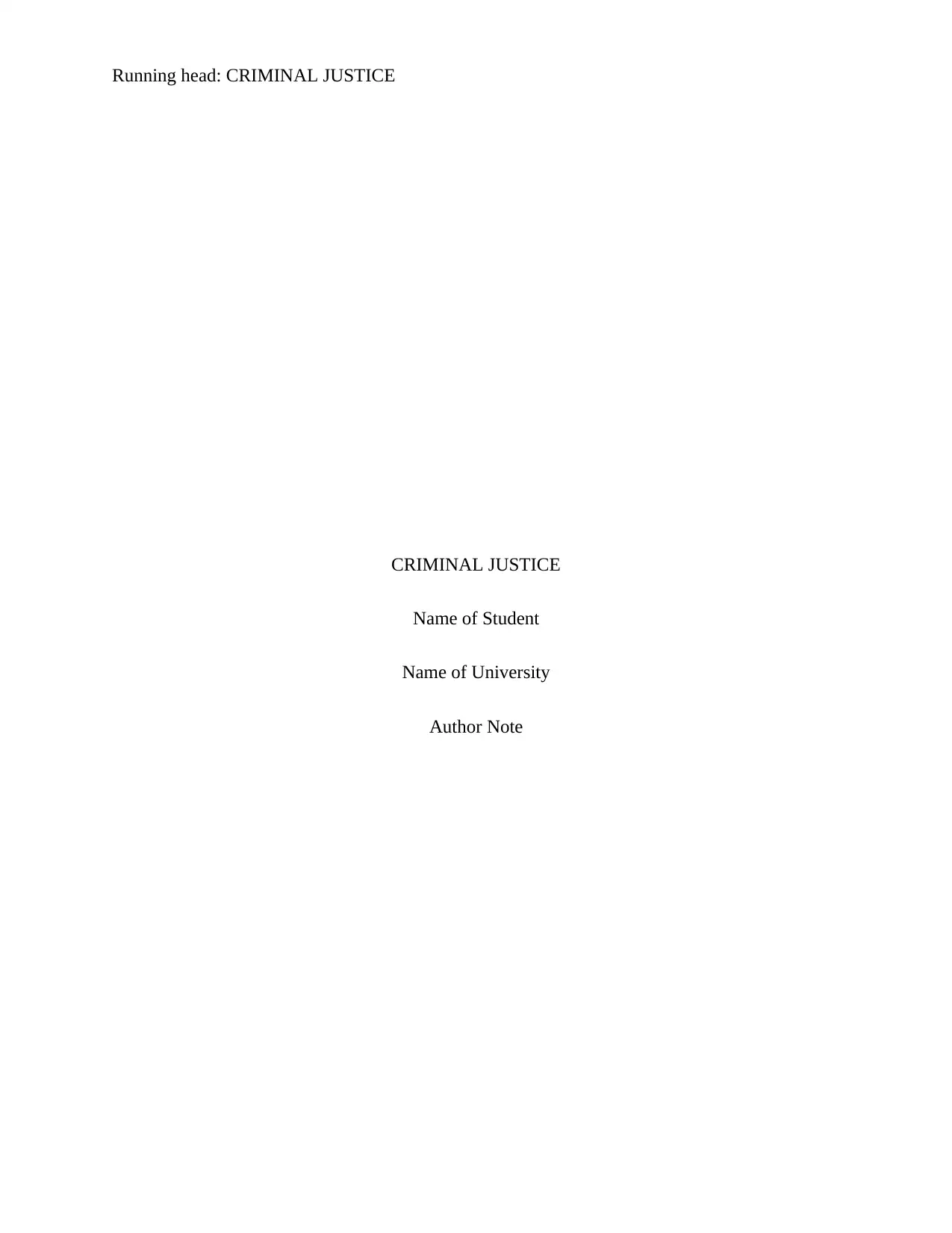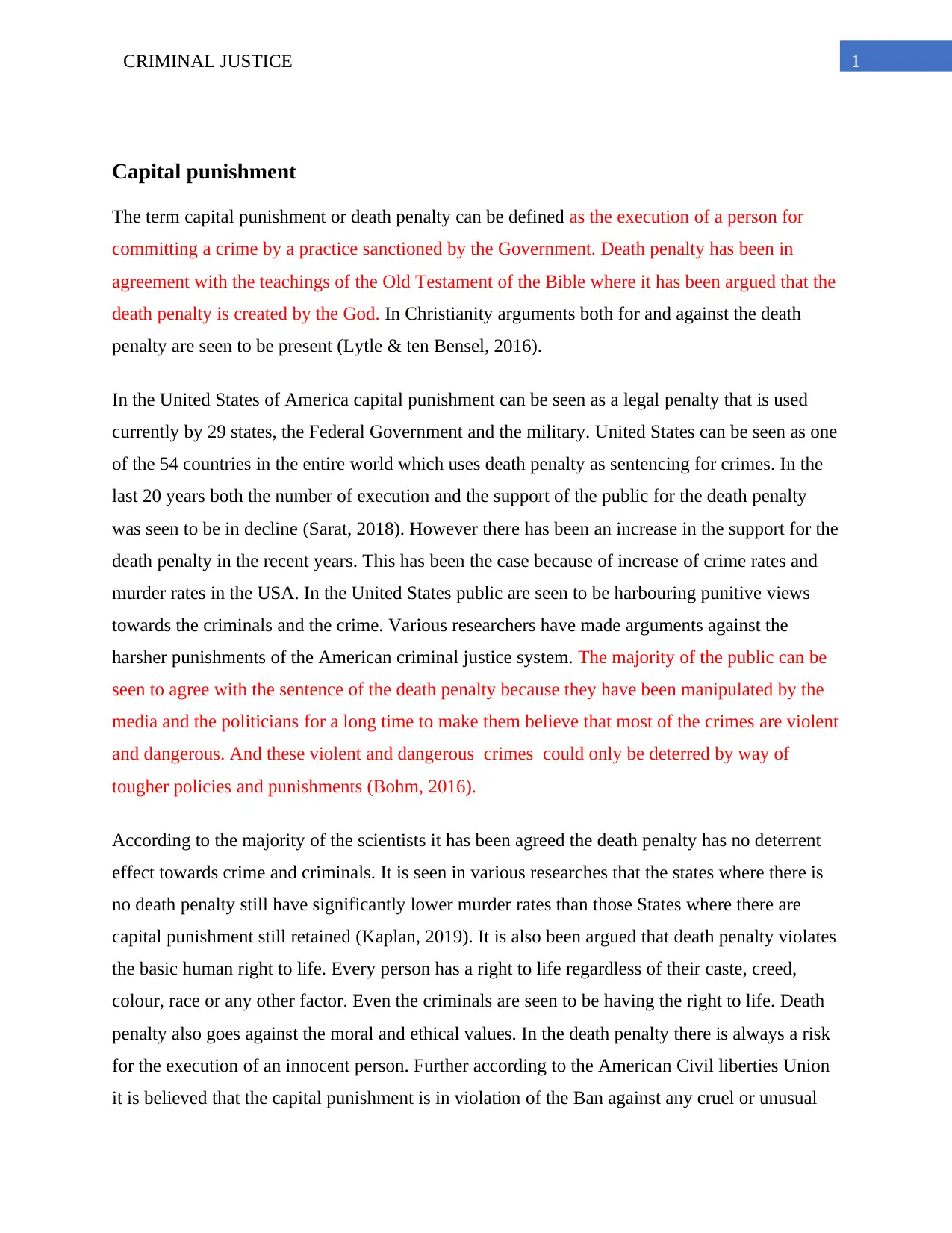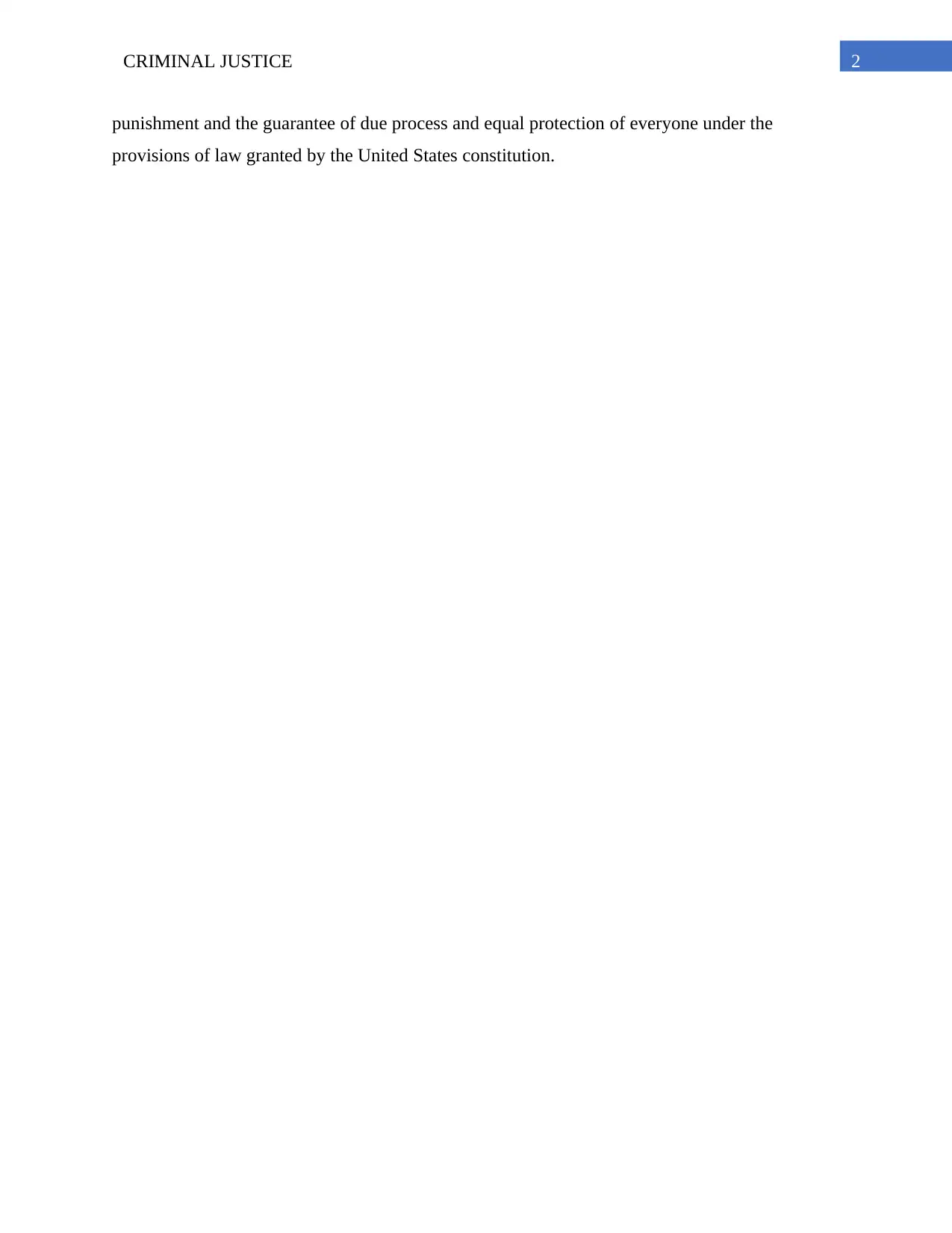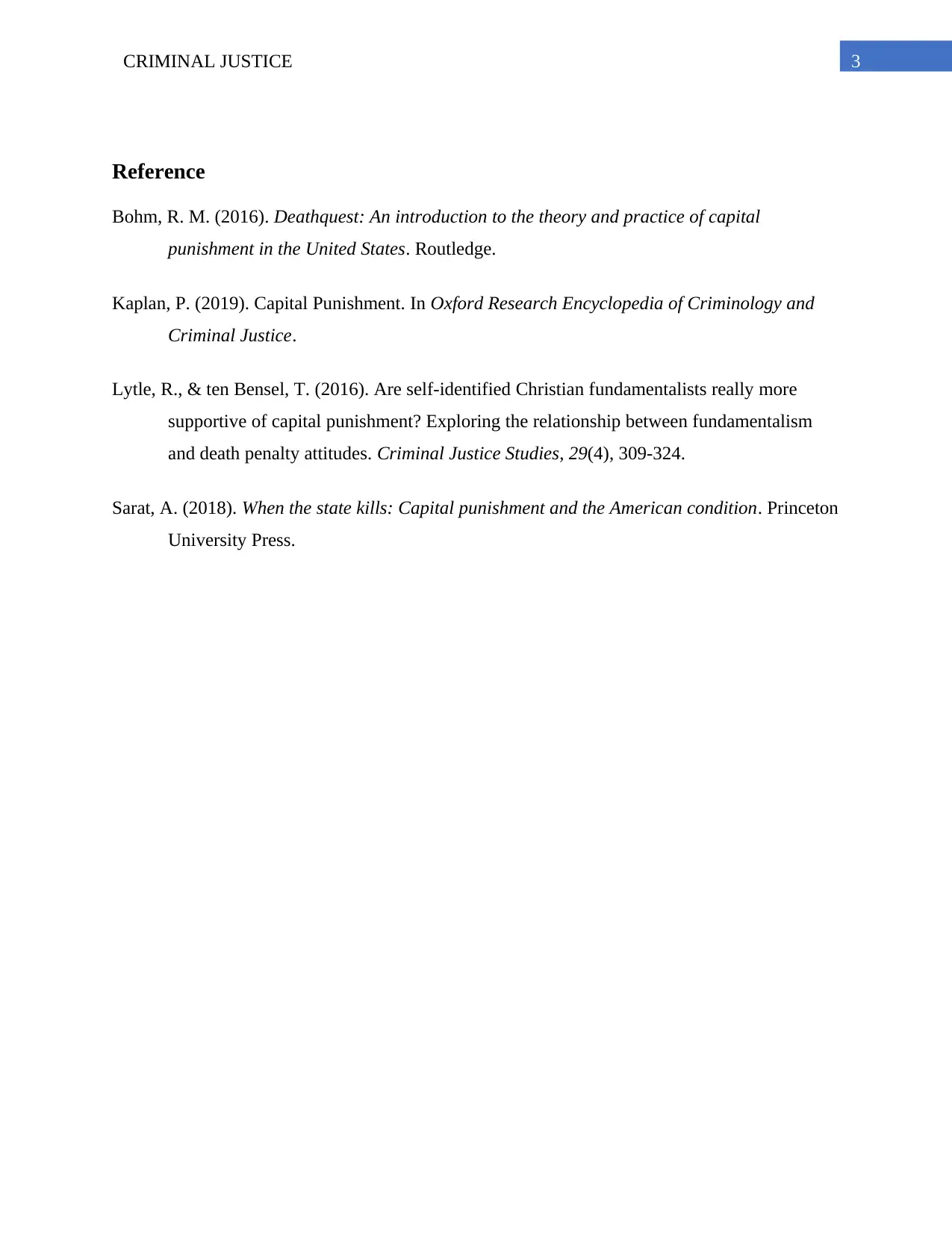An Analysis of the Death Penalty and its Impact on Criminal Justice
VerifiedAdded on 2022/12/21
|4
|641
|71
Essay
AI Summary
This essay examines the death penalty within the context of the American criminal justice system. It begins by defining capital punishment and its historical and contemporary significance, including its use in the United States. The essay delves into arguments both for and against the death penalty, considering viewpoints from religious, ethical, and legal perspectives. It explores the public perception of the death penalty and its relationship with crime rates, examining data and statistics to support the arguments. Additionally, the essay considers the potential for executing innocent individuals and the moral and ethical implications of the death penalty. The essay concludes by summarizing the complex issues surrounding capital punishment and its impact on society.
1 out of 4











![[object Object]](/_next/static/media/star-bottom.7253800d.svg)